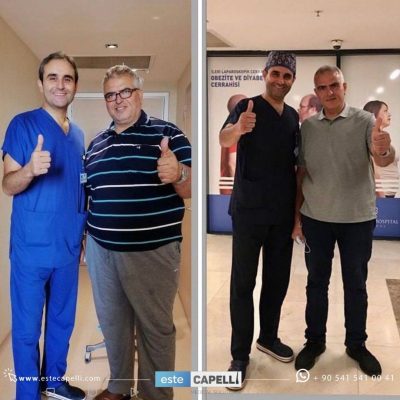Weight loss surgery, also known as bariatric surgery, is a transformative medical procedure designed to help individuals struggling with severe obesity achieve significant and sustainable weight loss. Obesity can lead to a host of health issues, including heart disease, diabetes, and joint problems, making weight loss surgery a potential life-saving option. In this article, we will explore the world of weight loss surgery, the different types of procedures available, and the essential post-operative recovery process.
What is Weight Loss Surgery?
Weight loss surgery comes in various forms, each with unique mechanisms to promote weight loss. The most common bariatric procedures include:
- Gastric Bypass (Roux-en-Y): In this procedure, a small pouch is created at the top of the stomach, limiting the amount of food that can be consumed. This pouch is then connected directly to the small intestine, bypassing most of the stomach and upper part of the small intestine.
- Sleeve Gastrectomy: A portion of the stomach is removed, leaving a sleeve-like structure that reduces the stomach’s capacity, and thus, the amount of food it can hold.
- Gastric Banding (Lap-Band): An adjustable band is placed around the upper part of the stomach to restrict food intake. The band can be adjusted over time.
- Biliopancreatic Diversion with Duodenal Switch (BPD/DS): This procedure involves a partial gastrectomy, similar to sleeve gastrectomy, and a complex rearrangement of the intestines to limit the absorption of calories and nutrients.
The choice of procedure is based on an individual’s specific health condition, weight loss goals, and surgeon’s recommendations.
Recovery and Healing Process
The recovery process after weight loss surgery is a crucial phase in achieving successful and sustainable weight loss. Here are some common aspects of recovery:
- Immediate Post-Op: Patients will typically spend a few days in the hospital for monitoring. During this time, they will be on a liquid diet and gradually transition to soft foods.
- Diet and Nutrition: After surgery, patients must adhere to a strict diet plan provided by their healthcare team. This includes a gradual progression from liquids to pureed foods and, eventually, solid foods.
- Physical Activity: Light physical activity is encouraged soon after surgery to aid in recovery. However, vigorous exercise should be reintroduced gradually and under the guidance of a healthcare professional.
- Regular Check-ups: Follow-up appointments with the surgical team are essential to monitor progress, address any concerns, and adjust the treatment plan as needed.
- Psychological Support: Many patients benefit from counseling and support groups to help them adjust to their new lifestyle and cope with the emotional aspects of significant weight loss.
Weight loss surgery is not only about shedding pounds but also about improving overall health and well-being. It is a life-changing journey that requires commitment to dietary and lifestyle changes. Success is most likely when patients actively engage with their healthcare team and take advantage of the support systems available. Weight loss surgery offers a path to a healthier, more fulfilling life, where individuals can embrace a brighter, more confident future.






